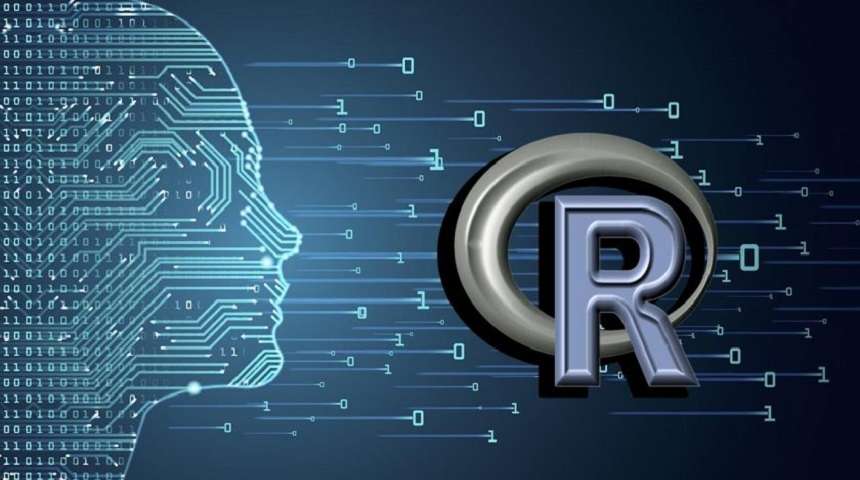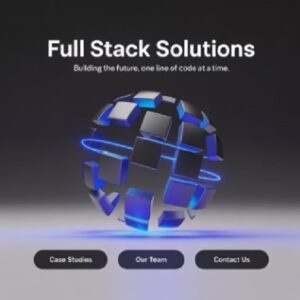
R is a programming language designed for statistical computing and graphics. It is free, open-source, and available on Linux, Mac OS X, and Windows operating systems. R is an essential language in Data Science. R was built to be fast, and it is used by more than 10% of all statisticians and data scientists.
R has over 1 million users worldwide; more than 2800 packages are available for use with the language. In addition, there are over 500 active contributors to the development of this programming language. A recent survey of R users conducted by RStudio found that most (57%) of respondents use R in their work.

Qualification of R Developers
R is an open-source programming language used for statistical computing and graphics. It has a wide range of uses, from data analysis to web development. As a result, the skills needed for R developers are not always the same and can vary depending on the job. R developers need skills that include statistics, database management, programming languages, and computer science fundamentals.
R developers must be able to analyze data quickly and effectively to make decisions based on it. They must also be able to design solutions that work with their data while keeping it secure and private. In R, the syntax of the code is more important than its meaning; this allows developers to write code quickly while still debugging it easily.
The following are some of the qualifications of R developers:
- Knowledge of statistics and probability theory
- Knowledge of R coding conventions
- Good understanding of mathematics
- Knowledge of Machine Learning and Predictive Analytics
Roles and Responsibilities of R Developers
The role of an R developer is to build and maintain software. They are responsible for developing, testing, and deploying new software products. This role requires a lot of knowledge about different programming languages such as R, C++, Java, Python, and SQL. It also requires a strong understanding of databases such as MySQL and PostgreSQL.
An R developer should also know data structures such as vectors and matrices. In addition, they should be familiar with data visualization tools like d3.js or ggplot2 to create compelling visualizations that can be used in presentations or reports.
The job responsibilities of an R programmer include:
- Designing user-friendly interfaces
- Creating graphics
- Developing algorithms
- Performing data analysis and visualization
Skills Required to Become an R Developer
R is a popular programming language used in data analytics and machine learning. R developers are expected to be proficient in both coding and statistics. In addition, r developers are expected to know how to use the language well enough to write code efficiently, follow best practices, debug code, and communicate with other programmers. They also need skills in data visualization, databases, machine learning, and artificial intelligence.
To become an R developer, it’s essential to have skills in statistics, mathematics, calculus, linear algebra, probability theory, computer science and programming languages like C++ or Java.
The following skills are required to become an R developer:
- Programming skills
The difference between programming in R and other languages is that R has a lot of built-in functions to handle everyday tasks such as plotting graphs or data manipulation. This makes it easy to use when you’re new to programming because you can focus on the task at hand without worrying about how to get started.
Programming in R is different from programming in other languages because it has fewer steps involved, and it’s not as tricky as other languages like Java or Python. R is a programming language that is used for statistical computing. It is a programming language that makes it easy to create data analysis and visualization tasks.
- Understanding of object-oriented programming
Object-oriented programming is a paradigm in which data and code are organized into separate classes containing data and functions. It also provides a way of creating reusable software components by encapsulating their functionality or behaviours.
An R developer should know object-oriented programming because it allows them to create new objects with different behaviour from the default ones, which are often made with the help of loops and nested if statements.
- Data analysis skills
Without the right data analysis skills, R developers would be unable to make sense of their data. As a result, they would not be able to identify patterns and trends, find business insights, and make better business decisions.
In data analysis, there is a wide range of skills needed to be successful. R programmers need to have these skills because they are often required in the workplace. Data analysis skills in R programming can help you gain an edge in your career, primarily if you work as an analyst or data scientist. These skills cannot be understated, and every R programmer needs to know them inside out.
- Knowledge of SQL
For those learning SQL, it is essential to know how R works. R is a programming language that can be used for statistical analysis and graphics. It is also used for data cleaning and data visualization. When you learn SQL, you will be able to use it in R development.
R developers can benefit from learning SQL by using the same skillsets they already have, such as R programming skillsets, linear algebra skillsets, statistical analysis skillsets, and machine learning algorithms in SQL queries. In addition, SQL is becoming more popular with developers because of its flexibility when querying databases and creating reports or visualizations based on the results of the queries.
- Knowledge of RStudio
The first and foremost reason R developers need to know RStudio is that it is the best tool for writing, debugging, and plotting. This software allows you to do all these things quickly and efficiently.
RStudio also has several features that are not available in other software. For example, it has a built-in debugger that allows you to debug your code while running your computer program. It also provides an integrated development environment (IDE) that makes coding easy by providing auto-completion features and code snippets.
How and Where to Learn R Programming
R is a language for statistical computing. It is an open-source programming language that can be used for data analysis, predictive modelling, visualization, etc. There are many resources available online to help you learn R programming. Some are free, while others require you to pay a subscription fee.
R can be challenging to learn for beginners, but it doesn’t need to be this way. There are many resources which can help you learn R programming. They include books, online tutorials, and videos. However, as a beginner in R programming, you will need to know how to install R on your system.
Here are some options for you to consider based on your preferences:
- Self-Guided Websites and Courses
- Books
- Virtual Classes
- Non-Virtual Classes
- Starting Your Projects
LearnVern offers a free R Programming Tutorial to help you learn the basics of R programming in a short amount of time. The course teaches you how to use R, the language used by statisticians and data scientists. It also teaches you how to use the basic functions in R that are essential for data analysis and visualization.
The course is designed for beginners who want to learn about R programming without spending much time on it. The materials are available on LearnVern’s website, and they can be accessed from any device with an internet connection.
Conclusion
R is a programming language that has gained popularity in recent years. It is used for statistical analysis and data mining. If you are keen on becoming an R developer, it will help you in your career path.
R is one of the most popular programming languages used for data science and analytics. It has a wide range of applications in different industries such as finance, healthcare, marketing, and retail. R developers are working in various fields such as finance, healthcare, marketing, and retail. They have the skills to develop apps for these industries with the R programming language.
R developers are also working in other fields like data science or analytics. For example, they use the R programming language to build predictive models or create statistical models that give insights into customer behaviour or market trends.
Author Profile
- I am the owner of the blog readree.com. My love for technology began at a young age, and I have been exploring every nook and cranny of it for the past eight years. In that time, I have learned an immense amount about the internet world, technology, Smartphones, Computers, Funny Tricks, and how to use the internet to solve common problems faced by people in their day-to-day lives. Through this blog, I aim to share all that I have learned with my readers so that they can benefit from it too. Connect with me : Sabinbaniya2002@gmail.com
Latest entries
 Artificial IntelligenceJuly 11, 2025Why AgentForce Is the Right Choice for Generative AI Development
Artificial IntelligenceJuly 11, 2025Why AgentForce Is the Right Choice for Generative AI Development Artificial IntelligenceJuly 10, 2025The Role of AI in Shaping Full-Stack Product Development in 2025
Artificial IntelligenceJuly 10, 2025The Role of AI in Shaping Full-Stack Product Development in 2025 How ToJuly 8, 2025How a Virtual Number in Switzerland Can Transform Your Communication Experience
How ToJuly 8, 2025How a Virtual Number in Switzerland Can Transform Your Communication Experience ArticleJuly 7, 2025What Makes a Great Sales Enablement Tool in 2025? 5 Must-Have Features to Look For
ArticleJuly 7, 2025What Makes a Great Sales Enablement Tool in 2025? 5 Must-Have Features to Look For